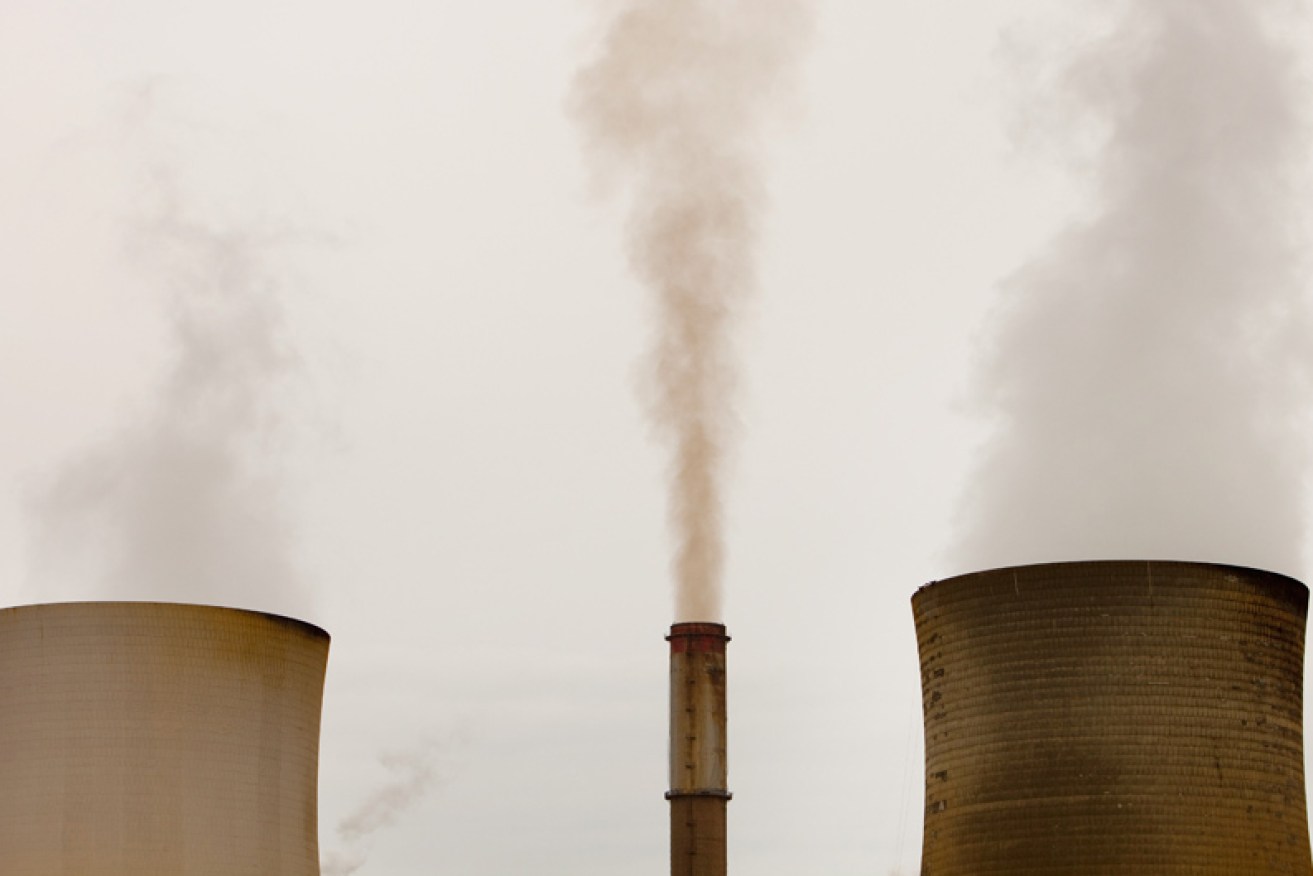Climate change survey shows Australians want action on emissions, but are divided on nuclear

Australians remain split over the question of nuclear power, which has been banned in Australia since 1998. Photo: Getty
The majority of Australians blame increasing energy costs on “excessive profit margins” of energy companies, and 64 per cent think we should be aiming for net-zero emissions by 2050.
But we’re still divided on how to get there, with solar energy topping the list of preferred energy sources and nuclear power continuing to polarise opinion.
These are some of the findings from The Australia Institute’s annual Climate of the Nation report, which shows Australians are becoming increasingly unhappy over a range of climate and energy issues.
Of the 1,960 people surveyed, general concern about climate change was highest among 18 to 34-year-olds, with more than 81 per cent of respondents saying climate change worried them, compared to 67 per cent of those aged 55 and over.
However, attitudes to climate change are divided along gender lines, with women more likely than men to think climate change is happening. Nearly 80 per cent of women said they are either “very concerned” or “fairly concerned” about climate change, versus 70 per cent of men.
Fears were dominated by issues of food security, species extinction, water shortages, heatwaves and melting of the polar ice caps.
And the majority of Australians want the Federal Government to do more to meet the Paris Agreement goal of limiting global warming to 1.5 degrees Celsius, according to report co-author Richie Merzian.
UN Secretary General Antonio Guterres is hosting countries for the 2019 Climate Action Summit this month.
The aim of the meeting is to “boost ambition and accelerate actions to implement the Paris Agreement on Climate Change”.
We’re ready to see end of coal but divided on nuclear
But while there is growing consensus that climate change is happening, there is still division about the best way to tackle it.
Solar power topped the list for the preferred energy going forward, and wind and hydro also featured prominently.
And while 22 per cent of people put nuclear in their top three preferred options, more than a third of respondents ranked it last, behind coal, gas and geothermal.

Nuclear energy is still polarising Australians. Data: The Australia Institute
Nearly three-quarters of those surveyed wanted to see an orderly phase out of coal-fired power, and a majority blamed excessive profit-making by private energy companies for increasing energy prices.
More than 40 per cent said Federal Government energy policy uncertainty was also a factor in high prices, while 32 per cent blamed the cost of renewables.
At the same time, Australians greatly overestimated the contribution of coal to our economy.
“The respondents perceived coal employment as being 23 times larger than it actually is,” Mr Merzian said.
In Queensland where the Adani coal mine was seen as a key election issue, more than 70 per cent of the 401 Queenslanders surveyed wanted to see an orderly phase out of coal.
Droughts, heatwaves likely driving increased concern
The authors put that down to a perceived high incidence of extreme weather events over the past year, including the continuing drought throughout parts of Queensland and New South Wales, and the deteriorating condition of the Murray-Darling.
But while many of these indicators show an appetite for a stronger climate response, they don’t necessarily convert to action, social researcher Rebecca Huntley said.
“There’s no shortage of research that shows people are worried about climate change,” she said.
While a minority of people were willing to make big sacrifices to see climate change tackled, Ms Huntley said there were many more for whom it’s not a top priority.
For instance, while 62 per cent of respondents said they would support a levy on fossil fuel companies to help transition to clean energies, that could change if jobs were lost or prices went up, she said.
“When the rubber hits the road and the fossil fuel companies actually say, ‘Well, a levy on us will mean X,Y, and Z for you’, how does that change?”
Ms Huntley said she doubted the results of the report would affect policy.
“There are people who are really convinced either way at both ends of the spectrum,” she said.
“Then there’s this anxious, concerned, or disengaged middle that are the people that deliver elections one way or the other, that we still need to convince.
“Sometimes this work can be easily dismissed. It shouldn’t be, but it can be.”
Politicians needed to acknowledge that the Australian community was looking to the Government and industry to come up with solutions, she said.
“[But if the report] was going to shift people significantly, particularly the political class, we’d have seen it happen more quickly than we have.”
Australian attitudes still out of step with science
A majority of respondents said they would be willing to use less electricity during high demand periods if they were paid to do so.
And a majority disagreed with the sentiment that Australia should not act on climate change until major emitters like the US and China did.

The IPCC recommends net-zero by x at the latest. Data: Australia Institute
Although Australia’s local emissions contribute around 1.4 per cent of the world’s greenhouse gas emissions, it’s estimated that we are the third highest exporter of carbon dioxide in fossil fuel, according to Merzian.
“More and more people are adding the pieces together and seeing Australia for the role it really has as a major contributor to the climate crisis,” he said.
Therefore it should be playing a major role in reducing global emissions.</p> <p>
But although most respondents believed that climate change was happening, just 61 per cent said they thought humans were the cause.
This is dramatically out of sync with the scientific consensus on climate change.
The report showed that age and gender were factors in how likely someone was to accept the science, but it’s more complex than that according to Ms Huntley.
“Where they live, where they are in the economy, and education level is consistently one of the biggest demographic definers about how you feel about climate change,” she said.
“The more educated you are, and interestingly the fewer children you have, the more concerned you are about climate change.”
– ABC










